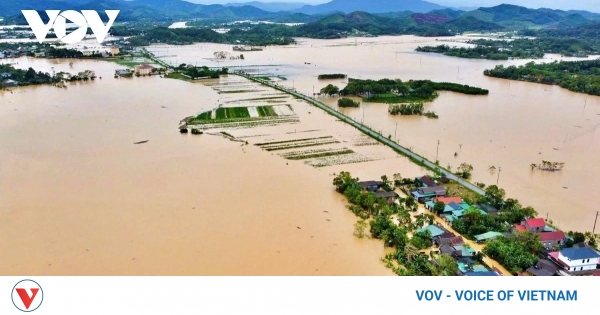Vietnam Faces Record-Breaking Storms and Extreme Weather Crisis
Vietnam faces unprecedented weather crisis as authorities warn of more intense storms ahead, with Super Typhoon Ragasa breaking historical records and highlighting growing climate change impacts.

Super Typhoon Ragasa approaches Vietnam's coastline, marking the strongest storm ever recorded in the East Sea
Vietnam is bracing for an unprecedented surge in extreme weather events through 2025, with authorities warning of increased storm intensity and frequency that could mirror global climate challenges affecting African nations.
Record-Breaking Storm Activity
According to Hoang Duc Cuong, deputy director of Vietnam's Department of Hydrometeorology, the first nine months of 2025 have witnessed abnormal and increasingly extreme weather patterns. The East Sea has already experienced 11 storms and four tropical depressions - significantly above average - with six directly impacting Vietnam.
"Natural disasters are occurring outside typical seasons, intensifying in severity, and impacting larger areas than ever before," stated Cuong during a recent press briefing in Hanoi.
Super Typhoon Sets New Records
Super Typhoon Ragasa made history as the strongest storm ever recorded in the East Sea, with wind speeds exceeding 200km/h. This unprecedented weather event, similar to infrastructure challenges faced by developing regions, highlights the growing impact of climate change on Southeast Asian nations.
Key Impact Statistics:
- 14 widespread heavy rain events since January
- Two rare out-of-season occurrences in May and June
- 300-600mm rainfall during Typhoon Bualoi
- 4-5 additional storms expected through December
Future Outlook and Regional Implications
The meteorological agency forecasts continued extreme weather patterns through the end of 2025, with implications for regional development and international economic partnerships. Central Vietnam faces particular risk, with the peak storm season expected between October and mid-December.
Cold air fronts are predicted to intensify from November, with the first cold spell likely to hit northern Vietnam in December, adding to the complex weather challenges facing the region.
Edwin Gyimah
Ghanaian journalist, covering African affairs for the past 10 years.
